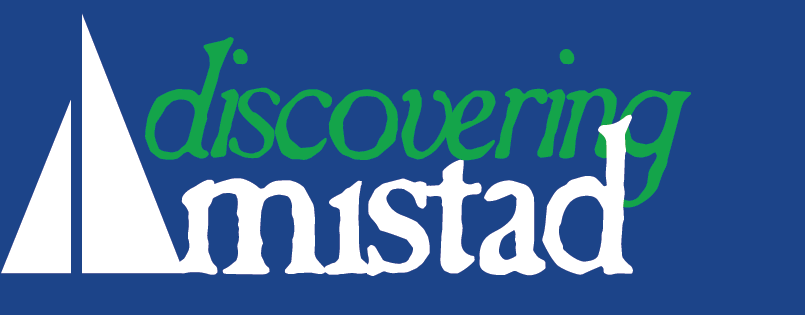MEDIA center: article
City gives local arts organizations almost $200,000 in grants
Yale Daily News | January 26, 2023
The Neighborhood Cultural Vitality Grant Award prioritized supporting arts and cultural projects that aim to uplift the city’s underserved communities.
By Megan Vaz, Staff Reporter
The city of New Haven has awarded $187,200 in grants to dozens of local organizations and individuals pursuing projects in the arts, culture and history.
As part of this year’s Neighborhood Cultural Vitality Grant Awards program, 42 awardees received funding, covering a wide range of events, educational programs, arts exhibitions and other projects. Those selected include a program teaching event photography to LGBTQ+ and BIPOC photographers, the Historic Wooster Square Association’s annual Cherry Blossom Festival, the Yale-China Association’s Lunarfest and multiple cultural dance programs. Recipients hope to use their funding to uplift New Haven’s diverse communities through creative ventures.
“I really feel pulled in supporting the immigrant community that we have here in New Haven,” Thabisa Rich, founder and board president of the Rich Arts Collective, said. “We hope to build a bridge that really connects us to our core humanness and promotes authentic connectedness within us, even though we come from different backgrounds, ethnicities and all sorts of cultural differences.”
In a press conference announcing the awardees, Mayor Justin Elicker underlined the importance of supporting arts and cultural initiatives to the city’s quest for racial justice. He drew attention to unequal distribution of resources between communities in the city’s history, which often disadvantaged Black residents and other people of color.
Elicker’s Director of Communications Len Speiller wrote in a press release that the grant program aligns with the city’s newly instituted Cultural Equity Plan, which aims to combat racial inequities in the arts and to “weave [cultural equity] into our systems” through investing in projects.
“The concentration of the City’s cultural resources and assets for too long has been downtown — away from the highest concentrations of Black and brown residents and communities in our city,” Elicker said in the press release. “Our Cultural Equity Plan was created to change that by supporting traditionally under-represented artists and cultural organizations and expanding the footprint of our cultural institutions to every corner of our city.”
Courtesy of Chanelle Goldson
Chanelle Goldson, executive board president of the Elm City Freddy Fixer Parade Committee, said that the grant application specifically prioritized underserved communities and minority groups in accordance with Elicker’s Cultural Equity Plan.
As the oldest Black American parade in the northeast, the Elm City Freddy Fixer Parade has usually drawn 4,000 to 6,000 spectators in past years. Parade units have included Black business owners, marching units, bands and other local Black organizations.
Although the event is usually held annually, this will be the organization’s first parade since 2019 due to the COVID-19 pandemic and funding shortages, which were brought in part by a new city ordinance requiring it to pay tens of thousands for police time. The parade received a grant of $7,000, which will help cover costs and support its artists.
“I think it’s important that these dollars become available, and we do have built-in honorariums in our budget to where we can pay travel and dance, or we can pay artists that are in need, and we can help other marching units if they need uniforms and things like that,” Goldson told the News. “So the funding goes directly toward the parade, but it pours right back into our community.”
The Rich Arts Collective received $6,000 in funding for its Culture Connect event, in which chefs of diverse backgrounds will share dishes from their cuisines and educate participants about their cultural significance. The event will also feature panelists and live performances that showcase Latin American, South African and other cultural arts.
Rich plans to use the funds to continue the organization’s work of building relationships between the city’s diverse ethnic communities, as well as providing Black people and other racial minorities a sense of home.
Educational project recipients include Discovering Amistad’s Voyage to Freedom tour, in which the organization’s members will travel to school districts along the coast to educate students about the Amistad Revolt of 1839. The organization says the revolt plays a vital role in the history of abolition and racial justice in the United States, as well as the city of New Haven’s history itself.
During the revolt, 53 enslaved Africans being illegally transported to Cuba on the “La Amistad” schooner rose up in revolt against their European enslavers, ordering Spanish plantation owners on board to take them back to Africa. Instead, the Spaniards took them to the East Coast, where a U.S. ship seized the schooner and other Americans sent the Africans to New Haven for incarceration. Many Connecticut residents took up their cause in support. Their incarceration, Spanish property claims and the illegality of transporting enslaved people to the U.S. sparked several legal cases, culminating in the Supreme Court ruling in favor of the enslaved Africans and their liberation.
Discovering Amistad owns the schooner and uses it to create an interactive educational experience for students, connecting the history of the revolt to current social justice topics. The city funding will allow more educators to work with the organization, increase open hours and days and attract more visitors.
“A lot of the students find that these hands-on lessons aboard the ship have significantly increased their comprehension of the impacts of the long storied issues of freedom, slavery, oppression and empowerment to achieve justice,” Maria Hernandez, executive assistant of Discovering Amistad, told the News.
Meanwhile, the Neighborhood Music School, which typically provides music and performing arts education to students of all ages, aims to use its grant to launch its Equitone Records label. The label will remove financial barriers for artists and prioritize working with Black musicians. According to communications manager Shayna Roosevelt, the organization hopes to secure ten fully-funded deals with Black artists.
In the near future, the school looks forward to supporting its artists through music and music video production, podcast interviews and record release management. It will also continue building relationships with other arts organizations within the Greater New Haven community.
According to Speiller, 36 percent of the recipient organizations and individuals were awarded the grant for the first time this year.
Megan Vaz covers Yale-New Haven relations and Local 33. Originally from South Florida, she is a sophomore in Pierson College majoring in history.


